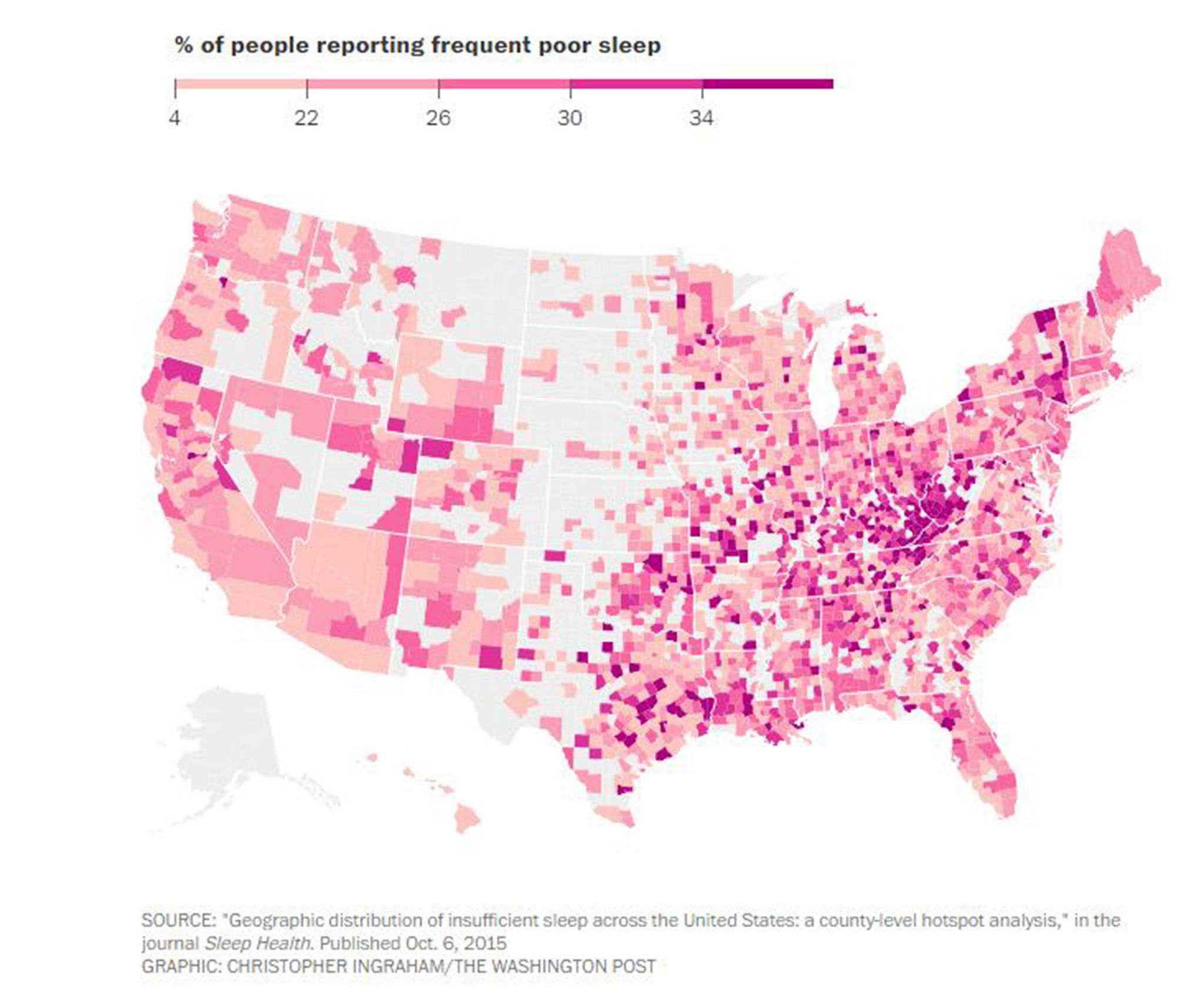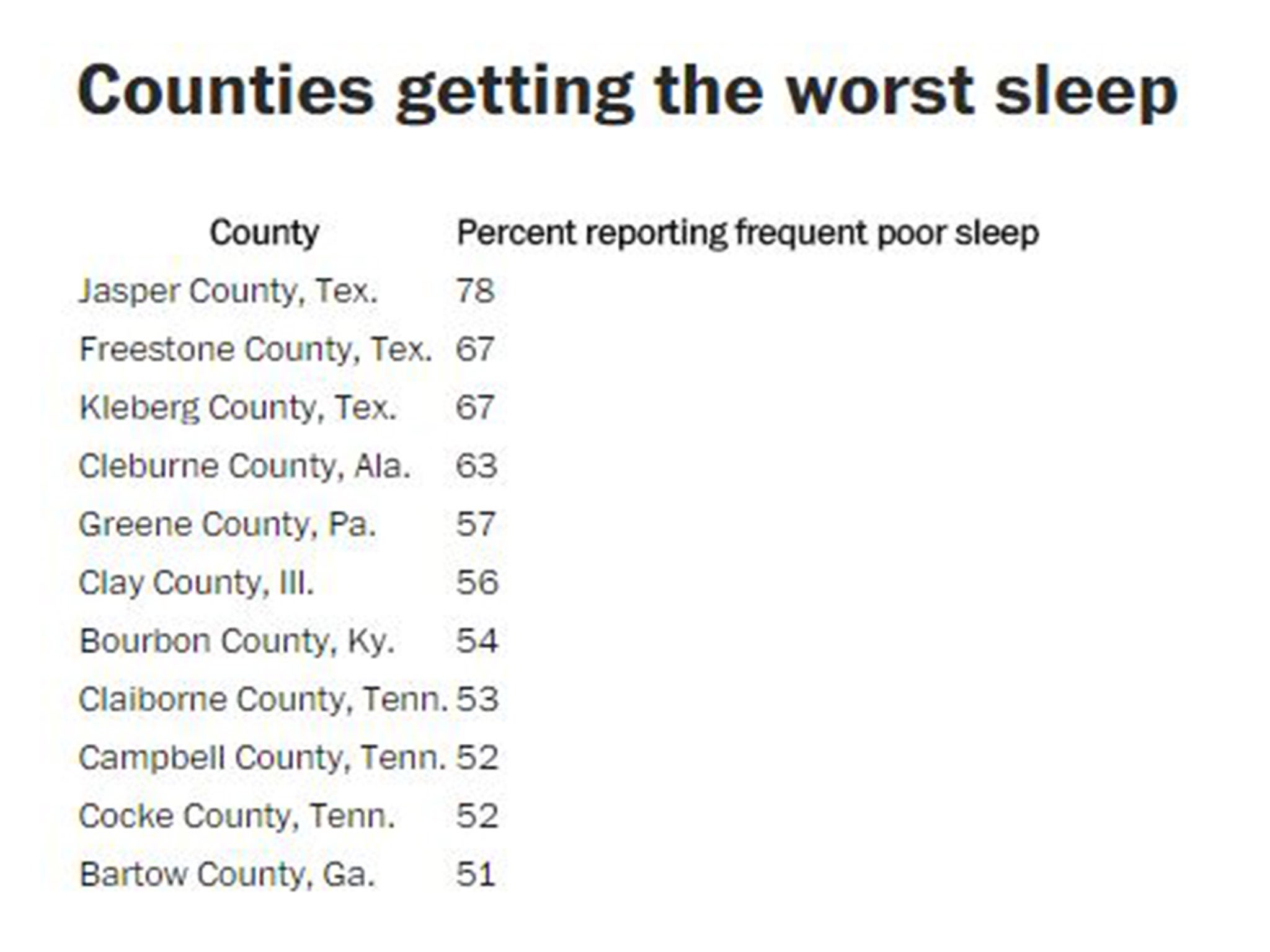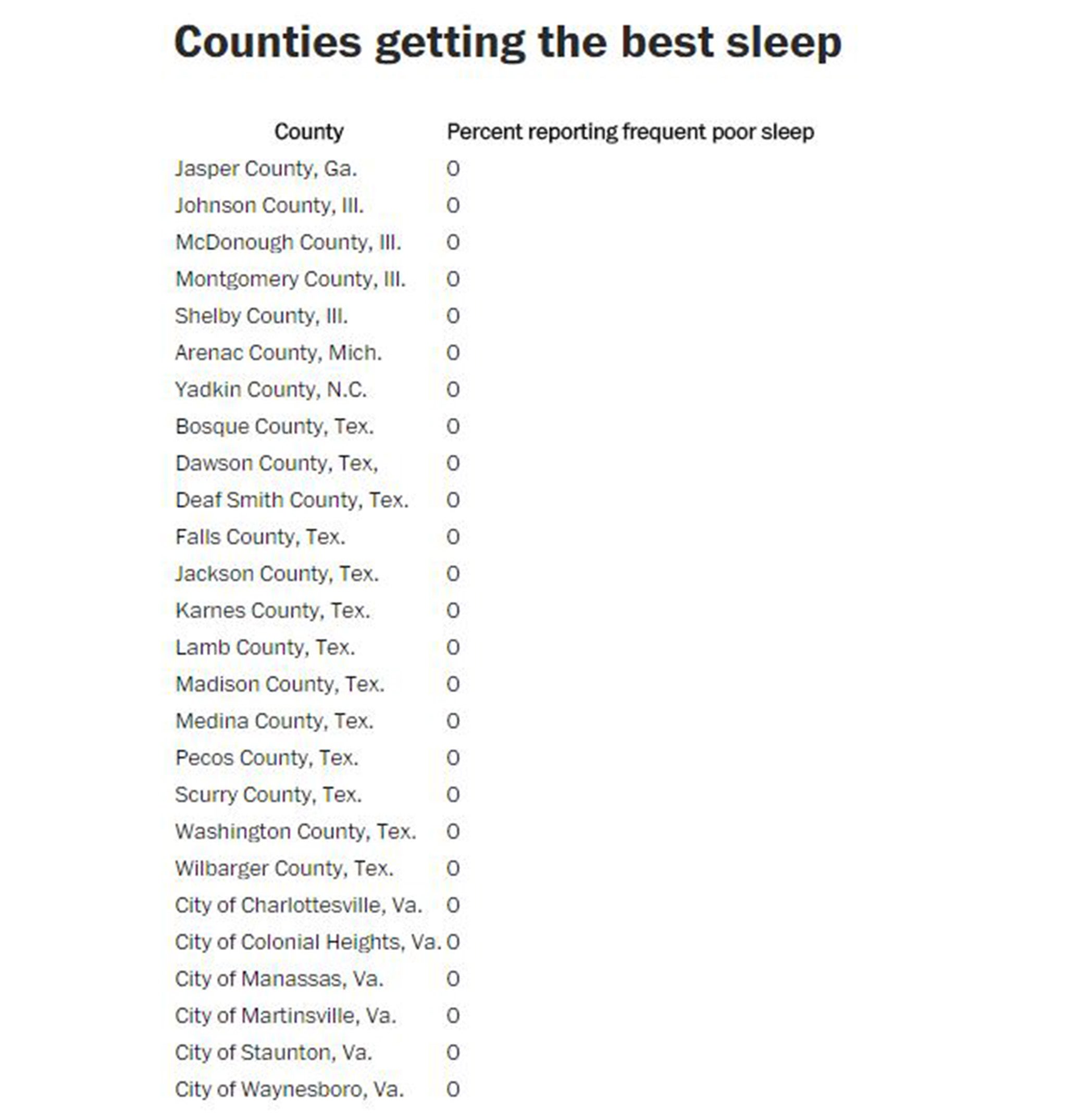The places in the US where Americans have most difficulty sleeping revealed in new study
You might assume that hectic, fast-paced lifestyles would lead to high rates of poor sleep in the nation's urban areas - but that's not necessarily what the data shows

The average American gets about 8½ hours of sleep on a typical weekday. But we know from national surveys that plenty of folks are getting a lot less than that. People who work long hours often get less sleep, for instance. And poorer Americans — who often have to work the longest, oddest hours — get less sleep than richer ones.
Now new research published in the journal Sleep Health finds that the quality of Americans' sleep has a geographic dimension, too. The data comes from the Centers for Disease Control and Prevention's 2009 Behavioral Risk Factor Surveillance Survey, which asked 432,000 people the following question: “During the past thirty days, for about how many days have you felt you did not get enough rest or sleep?”
Researchers separated people into two categories based on how they answered this question: those who reported poor sleep on fewer than 15 days, and those who slept poorly 15 or more days in the previous month. "The cutoff of 15 days was chosen to mirror the diagnostic criteria for insomnia," they explain. Symptoms of insomnia are generally considered "clinically relevant" when they persist for about half of a given stretch of nights, according to the paper.
Then they tallied the responses up at the county level and mapped the percent of each county's residents who reported this persistent poor sleep. In the end, they had enough data to plot the rates of persistent poor sleep for a little over two-thirds of U.S. counties. Here's what that looks like:

You might assume that hectic, fast-paced lifestyles would lead to high rates of poor sleep in the nation's urban areas. But surprisingly, that's not necessarily what the data shows. Instead, the nation's biggest cluster of bad sleep ended up in the heart of Appalachia and in a cluster of counties in Ohio, West Virginia, Kentucky, Virginia and Tennessee.
In some of these counties, 40 to 50 percent of the sample — and even higher, in some cases — reported difficulty sleeping on at least half of the days in the previous month. By contrast, the research also identified a number of "coldspots" when it comes to sleep deficiency — places where rates are below average. Wisconsin has a number of these counties, as does Northern Virginia. In many of these counties, rates of sleep difficulty fall below 20 percent.This represents a bit of a puzzle. Why would people in places such as Appalachia have more than double the rate of bad sleep as folks in Wisconsin? The researchers looked at a number of social and demographic factors to see whether anything correlated — obesity, income, education, drinking rates, overall physical and mental health, etc. They found, interestingly, that "relatively younger individuals of lower socioeconomic status and poorer health were more likely to live in hotspot counties."
Translation? People who were generally younger, poorer and in worse health were more likely to live in places with high rates of bad sleep. But that's just a correlation — it doesn't explain why people get worse sleep in those areas, or whether poverty and bad health are a cause of poor sleep, an effect of it or related to something else entirely. Especially when it comes to Appalachia. "It is unclear why this region, in particular, has such a high rate of insufficient sleep relative to other regions," the authors say.
In addition to bad health outcomes, these counties are among the most economically distressed in the nation. So it could be that a combination of poor health and money worries keep a lot of folks in this region up at night. But that's not clear from this paper alone.
So this represents a starting point for future research, not an endpoint. The authors are planning further dives into the CDC survey data to see whether it offers up any answers.
For reference, here are the 10 counties reporting the highest rates of frequent poor sleep, as well as the 26 localities where no respondents to the survey reported frequent poor sleep.


Copyright: Washington Post
Join our commenting forum
Join thought-provoking conversations, follow other Independent readers and see their replies
Comments